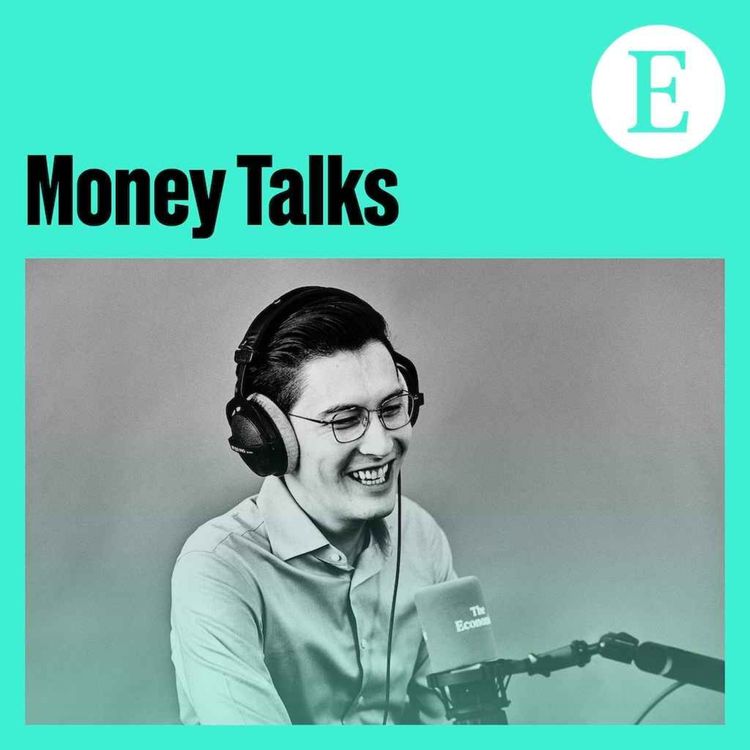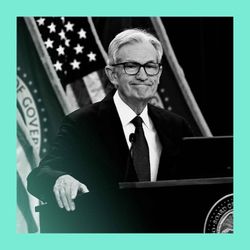Share

Money Talks from The Economist
Centres of attention: building for the global data boom
For everything that happens online, there is a server in a room somewhere doing the work. The physical underpinning of everything that happens online has become big business. Demand for server capacity is growing rapidly with the development of cloud computing and AI, and so is the need for the massive, energy-hungry data centres that support it. The location of those digital warehouses is now crucial, not just for speed and proximity, but for the new tussles over data protectionism. So how will economic and geopolitical considerations shape the data-centre industry?
Hosts: Mike Bird, Alice Fulwood and Tom Lee-Devlin. Guests: The Economist’s Ethan Wu; Cheam Tat Inn, managing director of Equinix Malaysia; and Waldemar Szlezak, global head of digital infrastructure at investment firm KKR.
Transcripts of our podcasts are available via economist.com/podcasts.
Listen to what matters most, from global politics and business to science and technology—subscribe to Economist Podcasts+.
For more information about how to access Economist Podcasts+, please visit our FAQs page or watch our video explaining how to link your account.
More episodes
View all episodes

A love letter to private equity
41:18|It’s hard to think of an industry more reviled than private equity. Its detractors accuse the sector of hollowing out and eventually killing beloved businesses such as Toys “R” Us. But this week, we want to convince you that private equity is the villain the world needs.Guests and hosts:Jeffrey Hooke, author of “The Myth of Private Equity”Raghuram Rajan, professor of finance at Chicago BoothAlice Fulwood, co-host of “Money Talks”Mike Bird, co-host of “Money Talks”Ethan Wu, co-host of “Money Talks”Topics covered:Private equityVenture capitalInvestmentTranscripts of our podcasts are available via economist.com/podcasts.Listen to what matters most, from global politics and business to science and technology—subscribe to Economist Podcasts+.For more information about how to access Economist Podcasts+, please visit our FAQs page or watch our video explaining how to link your account.
An interview with a king of chipmaking
33:59|The majority of America’s ten largest companies once dealt in oil. Today, it’s chips. The supply chain for semiconductors is complex and no less fraught with geopolitical tension. And at the centre of it is Arm. This week, we speak to the chip designer’s boss Rene Haas.Guests and hosts:Rene Haas, CEO of ArmShailesh Chitnis, The Economist’s global business writerMike Bird, co-host of “Money Talks”Ethan Wu, co-host of “Money Talks”Topics covered:Chips manufacturingThe semiconductor supply chainArm Holdings plcTranscripts of our podcasts are available via economist.com/podcasts.Listen to what matters most, from global politics and business to science and technology—subscribe to Economist Podcasts+.For more information about how to access Economist Podcasts+, please visit our FAQs page or watch our video explaining how to link your account.
Japan’s election: why investors are worried
35:59|Japan’s prime minister looks set for a big victory in this week’s snap election. In a bid to address Japan’s prolonged stagnation and rising cost of living, Takaichi Sanae has promised tax cuts and high government spending. How could her plans reshape the economy—and why have they rattled global markets?Hosts: Ethan Wu, Mike Bird and Alice Fulwood. Guest: Tobias Harris, founder of Japan Foresight.Transcripts of our podcasts are available via economist.com/podcasts.Listen to what matters most, from global politics and business to science and technology—subscribe to Economist Podcasts+.For more information about how to access Economist Podcasts+, please visit our FAQs page or watch our video explaining how to link your account.
‘Sell America’: is US market supremacy under threat?
29:20|From assaults on Federal Reserve independence to his threats to seize Greenland, the first year of Donald Trump’s second stint in the White House has been head-spinning. But so far, one cohort at least appears unfazed: investors. The S&P 500 has risen 15% over the past 12 months and hit yet another all-time high on January 27th. So what, if anything, would it take for investors to “sell America”?Hosts: Mike Bird, Alice Fulwood and Ethan Wu. Guest: Marko Papic from BCA Research.Transcripts of our podcasts are available via economist.com/podcasts.Listen to what matters most, from global politics and business to science and technology—subscribe to Economist Podcasts+.For more information about how to access Economist Podcasts+, please visit our FAQs page or watch our video explaining how to link your account.
Trailer: Boss Class Season 3
02:18|AI is changing how we work. It's turning us all into managers. Be a good one.The Economist’s management columnist, Andrew Palmer, takes on the bots in the third season of Boss Class. From cloning to coding, agents to entry-level jobs, he tackles the threat head on and figures out how to turn anxiety into opportunity. Along the way he meets bulls and bears and the people who can help you to master management in the age of AI.Full Season 3 out 29th January 2026.To listen to the full series, subscribe to Economist Podcasts+.https://subscribenow.economist.com/podcasts-plusIf you’re already a subscriber to The Economist, you have full access to all our shows as part of your subscription. For more information about how to access Economist Podcasts+, please visit our FAQs page or watch our video explaining how to link your account.
When AI gets physical: a peek inside the factories of the future
39:22|“The ChatGPT moment for robotics is here,” Nvidia boss Jensen Huang said earlier this month. And nowhere is that more obvious than on the factory floor, where machines aren’t just becoming more agile, but smarter, too. This week, Money Talks takes a trip to Germany, to tour the factories of the future.Hosts: Ethan Wu and Alice Fulwood. Guest: Anjani Trivedi, The Economist’s global business correspondent.Transcripts of our podcasts are available via economist.com/podcasts.Listen to what matters most, from global politics and business to science and technology—subscribe to Economist Podcasts+.For more information about how to access Economist Podcasts+, please visit our FAQs page or watch our video explaining how to link your account.
Powell move: how Trump’s Fed fight could backfire
32:23|Donald Trump’s administration has gone to war with the Federal Reserve. His justice department has issued subpoenas to the Fed. But chair Jerome Powell says they have nothing to do with alleged wrongdoing and everything to do with pressuring him to cut rates. Around the world, central bankers have come to Powell’s defence and, at home, even Republican lawmakers have called for the Trump administration to back down. So has Trump’s latest offensive against the Fed just backfired?Hosts: Mike Bird and Alice Fulwood. Guest: Alan Blinder, former vice chair of the Federal ReserveTranscripts of our podcasts are available via economist.com/podcasts.Listen to what matters most, from global politics and business to science and technology—subscribe to Economist Podcasts+.For more information about how to access Economist Podcasts+, please visit our FAQs page or watch our video explaining how to link your account.
Oil or nothing: will Trump’s Venezuela gamble pay off?
35:32|Donald Trump had oil on his mind when he declared America would “run” Venezuela, in the wake of an audacious US mission to capture the country’s dictator Nicolás Maduro. But while Venezuela holds the world's largest proven oil reserves, extracting a profit for US firms may be harder than President Trump thinks.Hosts: Ethan Wu and Mike Bird. Guest: Vijay Vaitheeswaran, The Economist’s global energy and climate innovation editor.Transcripts of our podcasts are available via economist.com/podcasts.Listen to what matters most, from global politics and business to science and technology—subscribe to Economist Podcasts+.For more information about how to access Economist Podcasts+, please visit our FAQs page or watch our video explaining how to link your account.
Poverty of notions: is Adam Smith overrated?
32:37|250 years after the publication of “The Wealth of Nations”, Adam Smith remains a towering figure in economics. But could the field’s most famous book be less revolutionary than you might think? Mr Smith is cited as an influence on politicians from Margaret Thatcher to Javier Milei, but he’s also been widely misrepresented and credited with ideas that were not his own. So is he really the “father of economics”, or is his influence overstated?Hosts: Mike Bird and Alice Fulwood. Guest: The Economist’s senior economics writer Callum Williams.Transcripts of our podcasts are available via economist.com/podcasts.Listen to what matters most, from global politics and business to science and technology—subscribe to Economist Podcasts+.For more information about how to access Economist Podcasts+, please visit our FAQs page or watch our video explaining how to link your account.